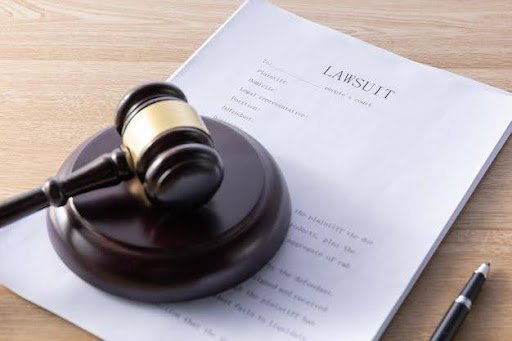Life can change unexpectedly. When a loved one dies due to someone else’s negligence, the emotional toll is immense. These situations can also lead to financial hardship, especially if the deceased was a primary financial contributor to the family.
You might wonder if you have legal options if you’re facing this difficult situation. The good news is that under certain circumstances, surviving family members may be eligible for compensation through a wrongful death lawsuit.
To win a wrongful death claim, it’s crucial to understand who can file one and what damages can be recovered. We’ll break down the key aspects of wrongful death lawsuits and how they can help families navigate this challenging time. Let’s dive in.
Legal Framework for Wrongful Death Claims
Wrongful death lawsuits rely on a legal concept called statutory law. These are essentially laws created by each state’s legislature that outline specific situations where a lawsuit can be filed. In the case of wrongful death, the statute defines who can bring a claim, what qualifies as wrongful death, and even how damages are awarded.
Here’s the catch: These laws vary from state to state. For instance, some states allow a wider range of family members to seek compensation, while others might be more restrictive. The bottom line is eligibility to file, and the compensation you might receive can depend heavily on where you live.
That’s why consulting with an attorney specializing in wrongful death cases in your state is crucial. They’ll deeply understand the specific laws and how they can be applied to your situation.
Primary Parties Eligible for Compensation
While the eligibility requirements may vary, most states allow certain primary parties to seek compensation through a wrongful death lawsuit. These typically include:
Spouse
A surviving spouse is typically the first person with the right to file a wrongful death lawsuit. This right applies regardless of gender. In most states, the surviving spouse can still file a claim even if the couple hasn’t been married for a long time.
However, things can get trickier if multiple spouses are involved, such as in situations with bigamy. In those cases, an attorney can help navigate the legal complexities.
Children
Biological and adopted children are generally considered primary beneficiaries in a wrongful death lawsuit. Their eligibility doesn’t depend on age or whether they were financially dependent on the deceased. Stepchildren can also be eligible in some situations, particularly if they are financially dependent on the deceased parent.
Parents
Just like children, biological and adoptive parents can be eligible for compensation in a wrongful death lawsuit. However, their eligibility in some states might hinge on whether they depended financially on the deceased child. This is especially true if the child was an adult at the time of their death.
Other Potential Eligible Parties
Beyond spouses, children, and parents, some states allow other relatives to seek compensation in a wrongful death lawsuit. These might include:
- Siblings
- Grandparents
- Domestic partners
- Financial dependents (e.g., live-in girlfriends or boyfriends)
Again, specific eligibility requirements and laws vary from state to state. For instance, some states might only allow siblings to file a claim if there’s no surviving spouse or children. Similarly, grandparents might have a stronger case if they were financially dependent on the deceased grandchild.
Here, too, an attorney can help you understand your eligibility. They’ll also be able to provide guidance on the potential amount of compensation you might receive as a secondary beneficiary.
Factors Affecting Eligibility and Distribution of Compensation
Many factors can impact your eligibility for filing a wrongful death lawsuit, as well as the amount of compensation you may receive. These may include:
- The cause and nature of the death (e.g., a car accident, medical malpractice, etc.)
- The deceased’s role in the family (e.g., primary breadwinner or caretaker)
- The financial impact of the death on surviving family members
- Any potential contributory negligence on the part of the deceased
Additionally, state laws may also dictate how damages are distributed among eligible parties. Some states follow “equitable distribution,” where damages are divided based on each party’s financial loss. Others may use a “per capita” system, where each eligible party receives an equal share.
Filing the Lawsuit

If you’re eligible to file a wrongful death lawsuit, it’s crucial to act quickly. These cases have strict deadlines, known as statutes of limitations, for when they can be filed. Missing these deadlines can result in the dismissal of your case, even if you have a valid claim.
It’s also essential to gather all relevant documentation and evidence to support your case. This might include things like medical records, accident reports, and financial statements.
Seeking Legal Counsel
Losing a loved one is never easy, but it can be especially challenging when their death is due to someone else’s negligence or wrongdoing. If you believe that your loved one’s death may qualify for a wrongful death claim, it’s essential to consult with an attorney as soon as possible.
They can help you understand the specifics of your state’s laws and guide you through the legal process. A skilled attorney can also represent your best interests and fight for the compensation you and your family deserve. So don’t hesitate to seek legal counsel if you believe you have a valid wrongful death claim.
